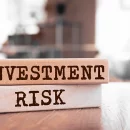Importance of Investing Acumen for a Secure Retirement
Everybody dreams of living a comfortable life when they grow old and have no regular source of income. For this, some start planning for their retirement when young, while others begin at a later time in their life. But irrespective of the age, efficient retirement planning requires investing acumen. Since most of your retirement planning comprises securing income via wise investments, it is good for you to have an investment aptitude. Sufficient knowledge about the market, secure investment tools, risk appetite, and favorable returns, helps you build a strong corpus for the second innings of your life.
Here are some reasons that highlight the importance of investing acumen for a secure retirement:
Table of Contents
1. It helps you explore different retirement savings options
There is a multitude of retirement investment options, each with its pros and cons. With so many choices, it often gets very confusing to choose the right one. The excess variety and the lack of information can become a prime cause for wrong investment decisions. This is one reason, why a lot of people consider retirement planning as stressful. According to a J.D. Power report, more than 75% of Americans are stressed about their monetary issues. The study also found that above 35.5% of people had less than $10,000 in savings. But the trouble is not the inability to save, instead, it is the lack of investment acumen. Most people do not know where to invest and how to begin the process of investing. They are unaware of popular retirement products and their suitability. Investor Survey of the FINRA Foundation’s 2018 National Financial Capability Study (NFCS) found that only a third of the 2000+ survey respondents were able to answer more than half of the investing questions.
On the other hand, strong investment skills help you to identify the right savings account and portfolio structure. With the required expertise, you can effectively make full use of tax-advantaged accounts such as a 401(k) and IRA (Individual Retirement Account). Moreover, you can select your investments like defined-benefit plans, 401(k), Roth IRA, etc. If you are well-versed with the market, you can also successfully balance your portfolio to include a mix of different asset classes as per your age and risk appetite. Ideally, you could choose between annuities, mutual funds, stocks, bonds, Exchange-traded funds, and Cash Deposits (CDs), etc.
2. It helps you start saving and investing early for better gains
If you have the required knowledge and expertise, you can start saving and investing early in life to leverage better returns. Irrespective of the retirement accounts you choose, an early start for retirement plans offers several benefits. There are multiple reasons why you must not procrastinate while securing your future income through investments.
- You can benefit from the power of compounding and keep reinvesting your money to maximize gains at a faster rate than otherwise.
- With relatively lesser responsibilities, you can save and invest more, which could improve your chances of a comfortable retirement.
- You can easily recover and absorb losses and financial shocks. This would mean you could risk investing in high-return market instruments like equity.
- You have more years to save, hence, more chances of building a strong retirement fund.
- You gain invaluable experience across a wider variety of retirement investments.
3. It helps you to improve your overall net worth
For those who are not well-versed with the market, the depth of financial conversation is limited to making and spending money. However, this is detrimental in the long-run, especially if you wish to have a peaceful retirement. A good understanding of the investment world would help you improve your net worth by taking the right decisions, aiming to minimize losses and maximize earnings. Overall, your net worth is the difference between what you own (assets) and what you owe (liabilities). Your assets include cash, treasury bills, real property, personal property, and investments like bonds, mutual funds, stocks, etc. Alternatively, liabilities comprise mortgages, loans, credit card balances, etc. By applying your financial competencies, you can improve your net worth and then direct it to your retirement goals. It is good to keep a check on your net worth to track your progress towards a secure retirement.
4. It helps you make rational investment decisions
Volatility is a reality in the investment world. Frequent fluctuations in the market can make you nervous and stressed, leading your emotions to overpower logic. In this case, there is a high probability that you will make investment decisions not driven by reason. For example, a sudden market downturn led to a fall in your portfolio. However, as per historic data and predictions, it is expected the market will shoot up soon and assets will regain value. If you do not possess the investment acumen, you might give in to your urge to abandon risky stocks to minimize losses. Ultimately, this decision will backfire when the market rises and you lose out on the gaining curve. On the other hand, it is important to not let your overconfidence override too and undermine the risk to make bad decisions and lose money. Emotional rather than logical reactions make it difficult for you to build your retirement wealth. With the right market aptitude, you would be more realistic and be able to keep your emotions in check, while maintaining a balanced portfolio for a secure retirement.
5. It helps you minimize investment expenses/fees and improve returns
Investments can get quite complicated, given the nature of transactions. With so many fees, expenses, penalties, etc. involved, you can get confused and end up paying hefty charges. If you have the right investment understanding, you can use this to identify high-expense areas and take corrective actions. For example, your brokerage statement indicates that you paid a huge amount for a stock trade. In this case, you could consider directing your funds to other comparable low-fee stocks or mutual funds that have reasonably fair returns. You can also invest through a broker that has low transaction costs. A lot of brokers conduct ETF and mutual fund trading on specific funds without any commission. Minimizing trading expenses can significantly help you increase your returns. Suppose, you invest $10,000 in a fund that has an expense ratio of 2.5%. As per this, after 20 years, your fund would be worth $46,022 (@10% annual return). However, if you invest the same money in a fund that has an expense ratio of 0.5%, your investment would be worth $61,159 after 20 years. In this case, competent investment skills could lead to savings of more than $15,000.
To sum it up
Often, the lack of investing acumen becomes a common reason to postpone retirement planning. But ignorance could lead to several negative impacts, risking your dreams of a secure retirement. That said, it is advisable to obtain at least basic and intermediate investment knowledge to ensure you take the right steps towards safeguarding the golden years of your life. You can improve your chances of a comfortable retirement life if you start understanding your investment choices and plans adequately.
In case, you need financial enlightenment and are looking to learn about investments, consider seeking help from professional financial advisors.

















